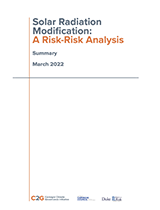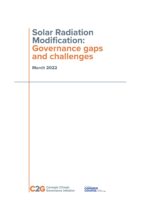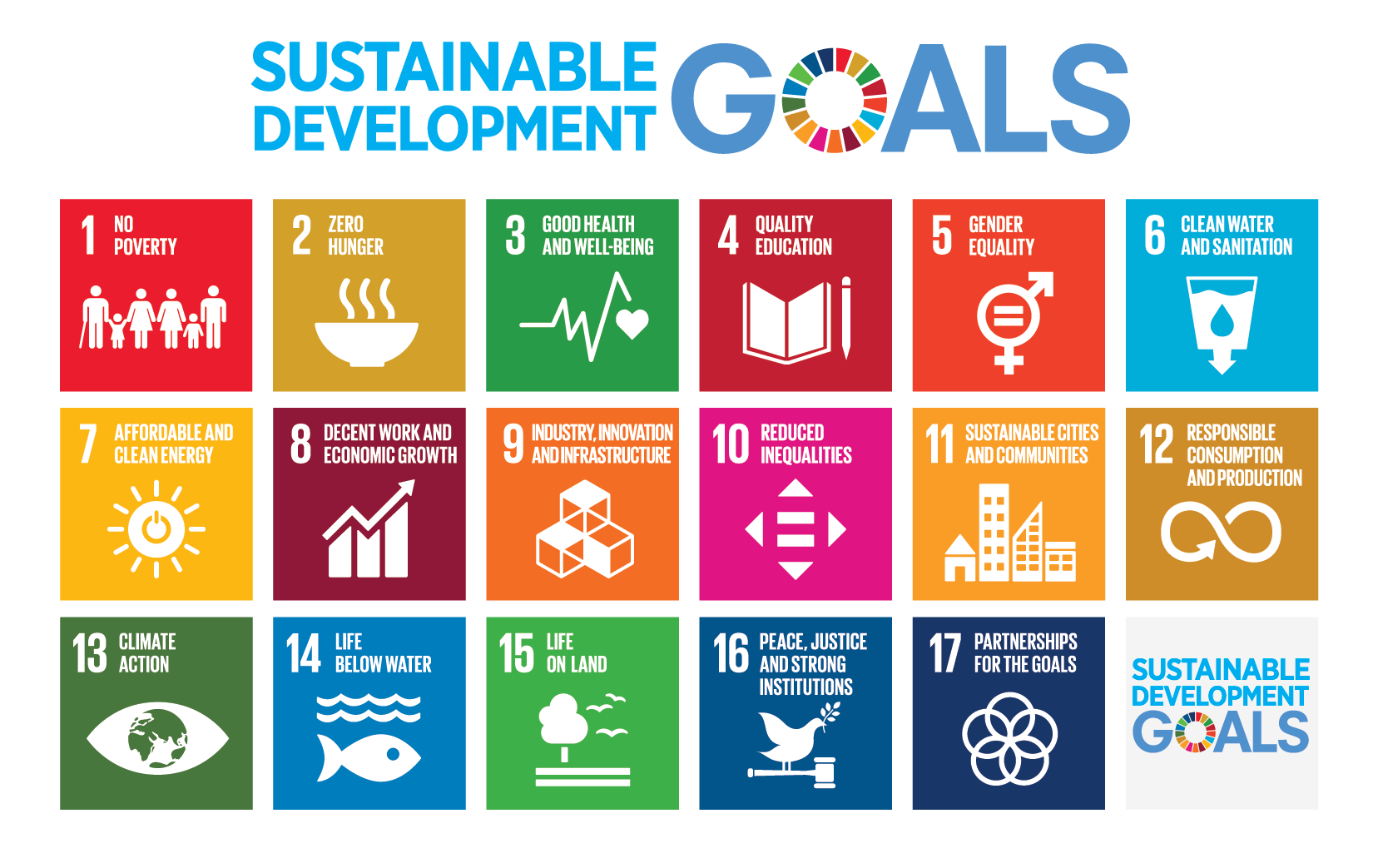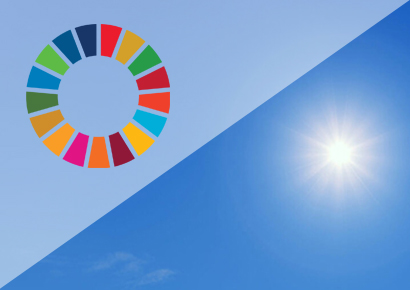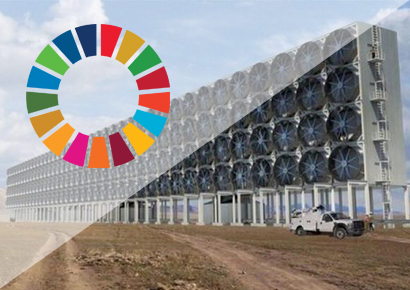Managing the Risk of a Temperature Overshoot in the Asia-Pacific
The Roles (if any) of Carbon Dioxide Removal and Solar Radiation Modification
29 November 2022
12:30 -13:50 Bangkok time
The Asia-Pacific region is highly vulnerable to climate impacts and the current mitigation commitments made by countries globally remain insufficient to keep the world within the Paris Agreement temperature goals. In addition to transformative mitigation and adaptation, the region might need to consider additional options – and their governance – for managing the risks of a temperature overshoot, including CDR and potentially even SRM.
This hybrid event co-organised by The Energy and Resource Institute (TERI) and the Carnegie Climate Governance Initiative (C2G) for the 7th session of the Committee on Environment and Development of the United Nations Economic and Social Commission for Asia and the Pacific (UNESCAP) aims to increase the awareness of stakeholders and catalyze regional discussions around the latest scientific and governance developments relating to large-scale CDR and SRM.
- What is the potential role of carbon dioxide removal (CDR) in delivering the Asia-Pacific region’s ambitions to be consistent with the Paris Agreement goals, and what would be the key governance challenges for the region?
- How could regional actors learn and build capacity to more effectively address overshoot risks? Should this include learning more about how to scale-up CDR? Should it include learning more about additional emerging options such as solar radiation modification (SRM)? And if so, how?
- How could regional actors learn and build capacity to more effectively address overshoot risks? Should this include learning more about how to scale-up CDR? Should it include learning more about additional emerging options such as solar radiation modification (SRM)? And if so, how?
Agenda
| Opening remarks |
|
| Keynote speaker |
|
| Panel discussion | Moderator: Janos Pasztor (in-person), Executive Director, C2G
Speakers
|
| Q &A with the audience |
Speakers
Shinichiro Asayama, Senior Researcher, National Institute for Environmental Studies, Japan
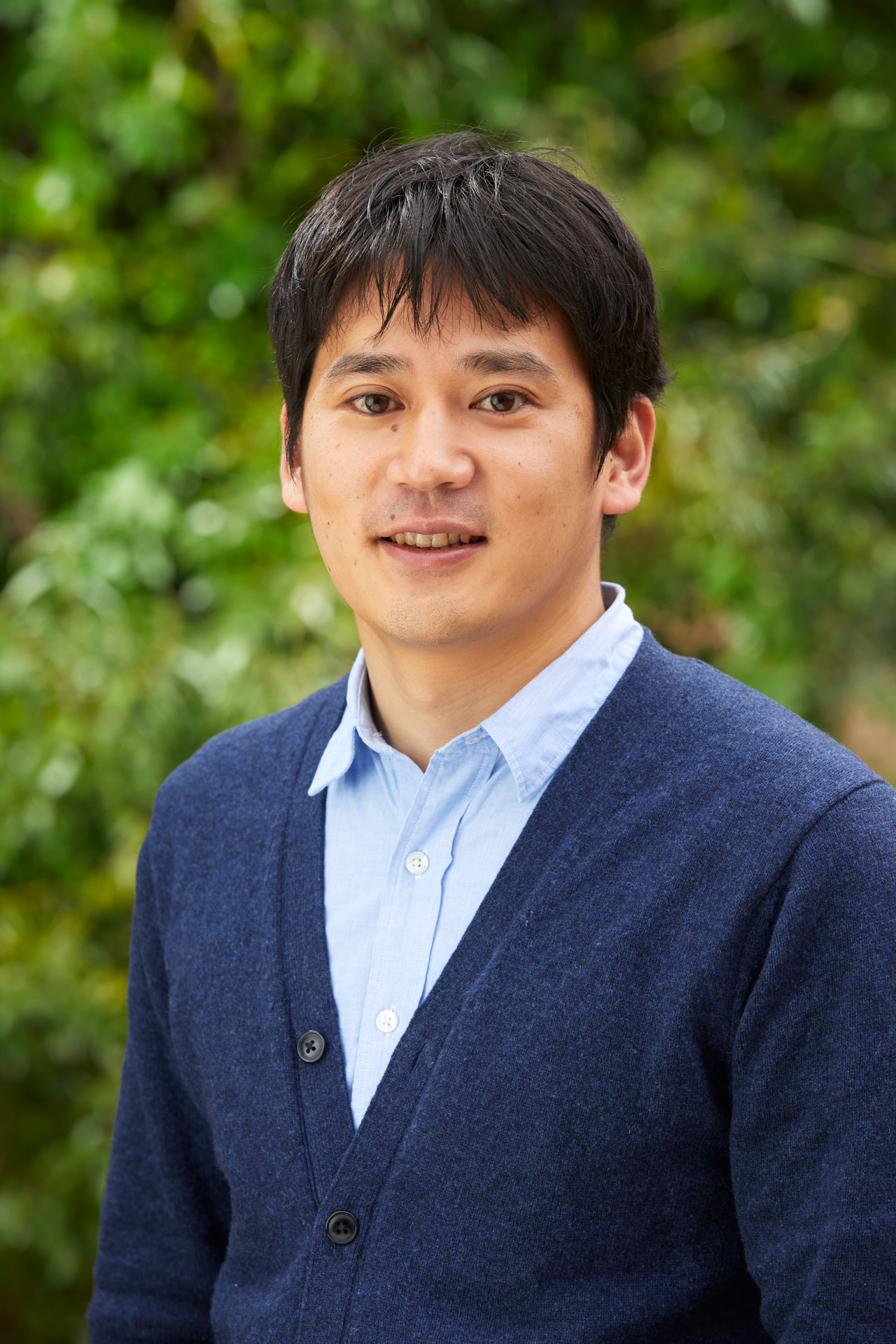 Shinichiro Asayama is a Senior Researcher at Social Systems Division, National Institute for Environmental Studies, Japan. As an environmental social scientist, he is interested in understanding how people construct climate change as a narrative for social change (or non-change). His research broadly focuses on the politics of scientific knowledge and technological imaginaries in the science-policy interface of climate change. In particular, from the interpretive and critical social scientific perspectives, he studies the role of discourses, framings and narratives in shaping the public debate around carbon removal and solar geoengineering technologies.
Shinichiro Asayama is a Senior Researcher at Social Systems Division, National Institute for Environmental Studies, Japan. As an environmental social scientist, he is interested in understanding how people construct climate change as a narrative for social change (or non-change). His research broadly focuses on the politics of scientific knowledge and technological imaginaries in the science-policy interface of climate change. In particular, from the interpretive and critical social scientific perspectives, he studies the role of discourses, framings and narratives in shaping the public debate around carbon removal and solar geoengineering technologies. Neth Daño, Asia Director, Action Group on Erosion, Technology and Concentration (ETC Group)
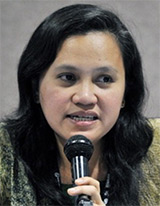
Elenita “Neth” Daño is Asia director of the Action Group on Erosion, Technology and Concentration (ETC Group) based in Davao City, southern Philippines. ETC Group is an international civil society organization that monitors the impacts of new and emerging technologies on marginalized communities, tracks corporate concentration and governance in food and agriculture, and investigates erosion of biodiversity.
Neth earned her bachelor’s degree in Development Studies (cum laude) and graduate degree in Community Development from the University of the Philippines. She is a researcher who has done in-depth analysis and published work on various issues in agriculture, plant genetic resources, new technologies and climate change in developing countries, particularly in Southeast Asia. She represented environmental non-governmental organizations in the Advisory Board to the Climate Technology Centre and Network (CTCN), the operational arm of the Technology Mechanism of the UNFCCC, and in global environmental governance discussions at the UN. In 2016, she was appointed for a two-year term by the UN secretary-general in the 10-Member Group that supports the UN Technology Facilitation Mechanism (TFM).
is Asia director of the Action Group on Erosion, Technology and Concentration (ETC Group) based in Davao City, southern Philippines. ETC Group is an international civil society organization that monitors the impacts of new and emerging technologies on marginalized communities, tracks corporate concentration and governance in food and agriculture, and investigates erosion of biodiversity.
Neth earned her bachelor’s degree in Development Studies (cum laude) and graduate degree in Community Development from the University of the Philippines. She is a researcher who has done in-depth analysis and published work on various issues in agriculture, plant genetic resources, new technologies and climate change in developing countries, particularly in Southeast Asia. She represented environmental non-governmental organizations in the Advisory Board to the Climate Technology Centre and Network (CTCN), the operational arm of the Technology Mechanism of the UNFCCC, and in global environmental governance discussions at the UN. In 2016, she was appointed for a two-year term by the UN secretary-general in the 10-Member Group that supports the UN Technology Facilitation Mechanism (TFM).
Ajai Malhotra, Distinguished Fellow and Senior Advisor (Climate Change), TERI
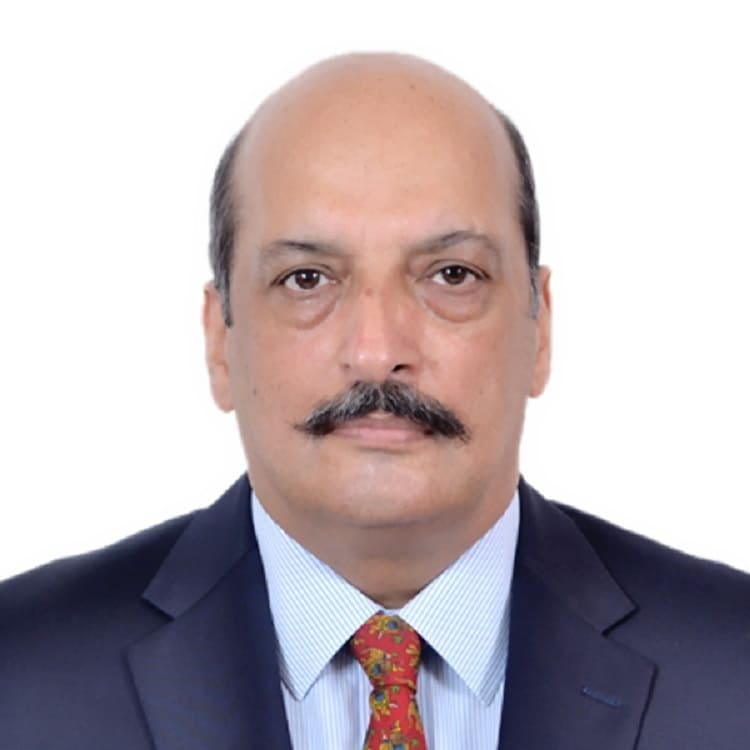
Ajai Malhotra holds an M.A. in Economics from Delhi School of Economics. He joined the Indian Foreign Service in 1977 and worked in various capacities at the Ministry of External Affairs, New Delhi, and Indian missions in Bucharest (Ambassador; 2003-2005), Geneva, Kuwait (Ambassador; 2009-2011), Moscow (Ambassador; 2011-2013), Nairobi, New York (Ambassador/DPR to UN; 2005-2009) and Washington DC (Minister; 1999-2003). He retired as Ambassador of India to the Russian Federation in late 2013, after 37 years of distinguished service.
His many ongoing responsibilities since 2014 include that of Distinguished Fellow & Senior Adviser (Climate Change), TERI; Chairperson & Managing Trustee of Chikitsa and Shiksha – NGO’s providing free primary healthcare and free education & vocational training respectively; Chairperson, NAB India Centre for Blind Women & Disability Studies; and Chairperson, Nehru Trust for the Indian Collections at the Victoria & Albert Museum. From 2015-2019 he served as Independent Director on the Boards of ONGC and ONGC Videsh. Since 2017 he is an elected Member of the UN Human Rights Council Advisory Committee, Geneva, serving as its Chairperson during 2021-2022. In August 2022 he was elected a member of the UN Working Group on Communications, Geneva.
Ambassador Malhotra has been involved in international negotiations on environmental, developmental, energy and trade issues for well over four decades and been on the Indian team negotiating on biological diversity, climate change, desertification, education, energy, forestry, health, human rights, human settlements, intellectual property rights, international trade, labour rights, ozone depletion, and sustainable development.
Dechen Tsering, Director, United Nations Environment Programme (UNEP) Asia and the Pacific Office
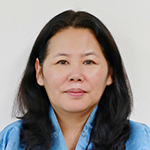 Ms. Dechen Tsering was appointed as the regional director of UN Environment Programme (UNEP) in Asia and the Pacific in March 2017. As the regional arm of UNEP, headquartered in Nairobi, Kenya, the Asia-Pacific office works with governments, local authorities and the private sector to develop and put into place cleaner and safer policies and strategies that encourage the efficient use of natural resources and reduce risks for humans and the environment.
Ms. Dechen Tsering was appointed as the regional director of UN Environment Programme (UNEP) in Asia and the Pacific in March 2017. As the regional arm of UNEP, headquartered in Nairobi, Kenya, the Asia-Pacific office works with governments, local authorities and the private sector to develop and put into place cleaner and safer policies and strategies that encourage the efficient use of natural resources and reduce risks for humans and the environment.
Ms. Tsering has held management and leadership positions with the United Nations and has over 30 years of experience in national government and intergovernmental organisations. She has been actively involved in intergovernmental negotiations as a key negotiator for least-developed countries and contributed to the establishment of the Least Developed Countries Fund and the Least Developed Countries Expert Group. She also has experience in the management of complex development projects. She comes to UNEP from the United Nations Framework Convention on Climate Change (UNFCCC) secretariat, where she served as director of the Finance, Technology and Capacity-building Programme. In that position, she supported international co-operation on mobilisation of finance, technology development and transfer, and capacity building to enable countries to take enhanced action on climate change. Prior to that position, she was the deputy regional director of UNEP in Asia and the Pacific.
Ms. Tsering holds a PhD in forest economics and policy from the Federal Institute of Technology, Zurich. She also has a master’s degree from Georgetown University and undergraduate degrees from the University of California, Berkeley.
Vibha Dhawan, Director General, The Energy and Resources Institute (TERI)
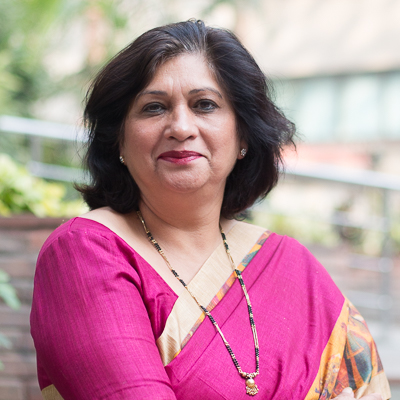
Dr Dhawan is actively involved in research as well as policy development, both at the national and international level. She is a task force member of a number of committees of the Department of Biotechnology (DBT), the Biotechnology Industry Research Assistance Council (BIRAC), the Biotech Consortium India Limited (BCIL) etc.
She is currently serving as Adjunct Professor, Consul General South Asia Partnership, Michigan State University. She has successfully completed a number of international assignment such as co-ordinator for the Asia Pacific Consortium on Agriculture Biotechnology (APCoAB); Advisor to Director General, The International Maize and Wheat Improvement Centre (CIMMYT); and Deputy Director, Research Partnerships & Co-ordination with the Borlaug Institute for South Asia. She has served on the boards of prestigious organizations in India and overseas including Jawahar Lal Nehru University, Ambedkar University, Ayurvet Foundation and Centre for Agriculture and Bioscience International (CABI).
Dr Dhawan as a researcher was instrumental in the establishment of the highly successful Micropropagation Technology Park at TERI. Her other major achievements includes developing e-contents for the post-graduate programme in biotechnology for the University Grants Commission. Her recent research interests are in the area of biofuels. She is currently the coordinator of the DBT-TERI Centre on Integrated Production of Advanced Biofuels and Biocommodities. She was Advisor, Bio-resources & Biotechnology, to the Late Tarun Gogoi, the former Chief Minister of Assam.
She is the winner of Indian Women Achievers Sammaan 2017 by NRI Achievers; Women Leadership Agriculture Award 2016 by the Indian Council of Food & Agriculture; First Biotech Product and Process Development and Commercialization Award of the Department of Biotechnology in 2000, the Kamal Kumari National Award for Science and Technology and the first All India Biotech Association (AIBA) award in 1998.
She has authored 6 books and over 50 publications.
Janos Pasztor, Executive Director, Carnegie Climate Governance Initiative (C2G)

Earlier, he was Acting Executive Director for Conservation (2014), and Policy and Science Director (2012-2014), at WWF International. He directed the UNSG’s Climate Change Support Team (2008-2010) and later was Executive Secretary of the UNSG’s High-level Panel on Global Sustainability (2010-2012). In 2007 he directed the Geneva-based UN Environment Management Group (EMG). During 1993-2006 he worked and over time held many responsibilities at the Climate Change Secretariat (UNFCCC), initially in Geneva and later in Bonn.
His other assignments included: the Secretariat of the UN Conference on Environment and Development (Earth Summit ’92); Stockholm Environment Institute; United Nations Environment Programme (UNEP); Secretariat of the World Commission on Environment and Development (Brundtland Commission); the Beijer Institute; and the World Council of Churches. He has BSc and MSc degrees from the Massachusetts Institute of Technology (MIT).
Kaveh Zahedi, Deputy Executive Secretary, United Nations Economic and Social Commission for Asia and the Pacific (UNESCAP)
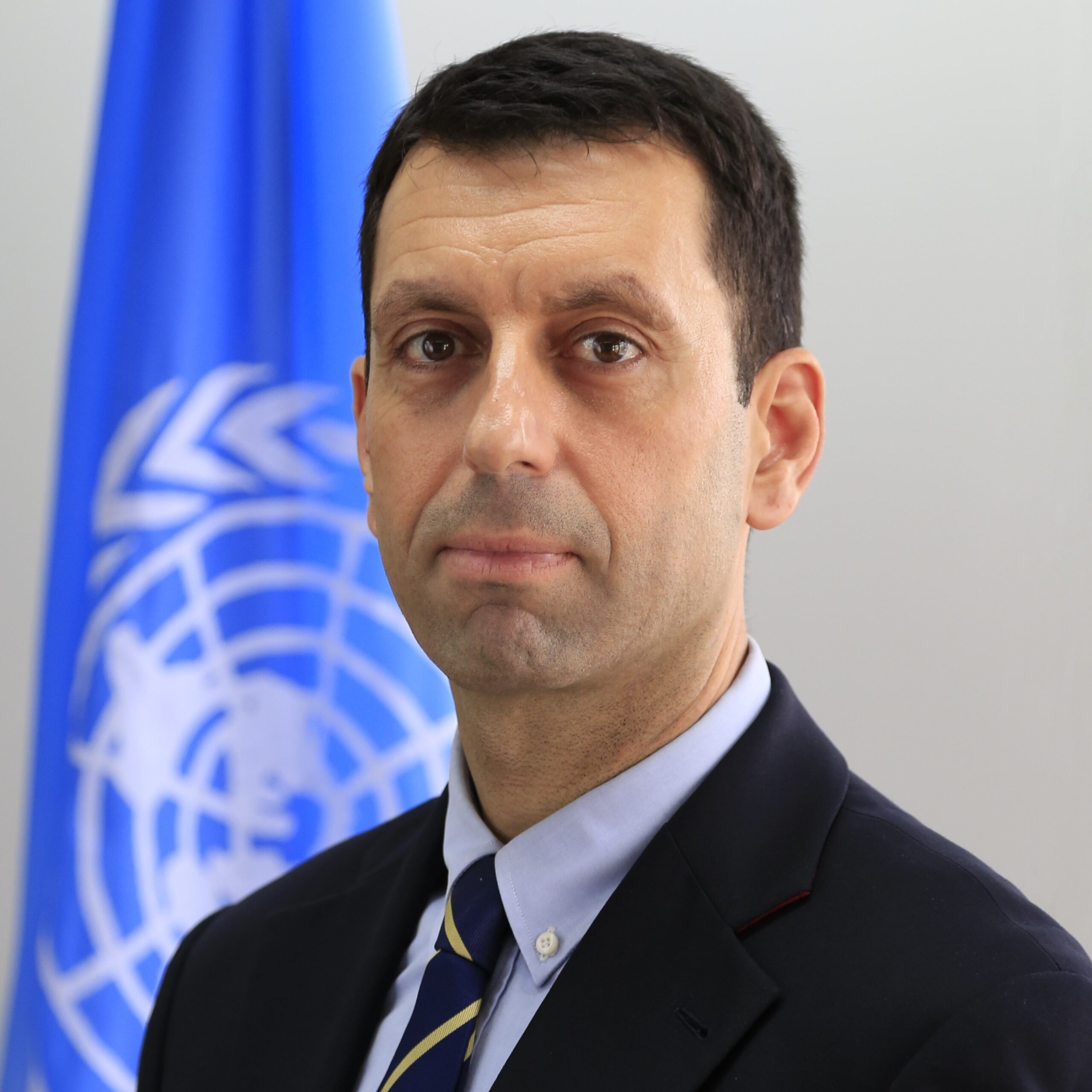 Kaveh Zahedi is the Deputy Executive Secretary of the United Nations Economic and SocialCommission forAsiaandthe Pacific (UN ESCAP).He overseesESCAP’s programmes on energy, environment, natural disasters, finance, trade, transport, social development, and statistics, all in support of the implementation of the 2030 Agenda for Sustainable Development. He also supervisesESCAP’s institutes on ICT for Development(Incheon), disaster information management (Tehran), agricultural mechanization(Beijing), statistics (Chiba) and technology transfer(Delhi). He helps to run the UN Regional Cooperation Platform, facilitates collaboration with UN Resident Coordinators and Country Teams and oversees implementation of the UN regional reform process.
Kaveh Zahedi is the Deputy Executive Secretary of the United Nations Economic and SocialCommission forAsiaandthe Pacific (UN ESCAP).He overseesESCAP’s programmes on energy, environment, natural disasters, finance, trade, transport, social development, and statistics, all in support of the implementation of the 2030 Agenda for Sustainable Development. He also supervisesESCAP’s institutes on ICT for Development(Incheon), disaster information management (Tehran), agricultural mechanization(Beijing), statistics (Chiba) and technology transfer(Delhi). He helps to run the UN Regional Cooperation Platform, facilitates collaboration with UN Resident Coordinators and Country Teams and oversees implementation of the UN regional reform process.
Prior to this, Mr. Zahediworked at the United Nations Environment Programme (UNEP) including as its Regional Director and RepresentativeforAsia and the Pacific and as DeputyDirectorofthe Division of Economy, overseeing work on green economy, resource efficiency and climate change. As Climate Change Coordinator he led the development of the first organization-wide climate change programme, and regularly headed the UNEP team for the UNFCCC climate talks.He also led the formation of major UN partnerships such as the UN-REDD Programme (with FAO and UNDP), Ecosystem Based Adaptation Programme (with IUCN and UNDP), the Climate Technology Centre and Networks (with UNIDO), and the Climate and Clean Air Coalition. Over two decades Mr. Zahedi has worked for theUnited Nations in Kenya, Mexico, Europe and Thailand. Before joining the United Nations, Mr.Zahedi worked at an NGO as project manager for agricultural land micro credit projects in Latin America and the Middle East. He holds a Master’s degree from the Fletcher School, Tufts University, USA, and a BS first class degree in Economics & Geography, from University College London.
Andy Reisinger, Vice-Chair of IPCC, Visiting Fellow, Climate Change Institute, Fenner School of Environment and Society, College of Science, Australian National University
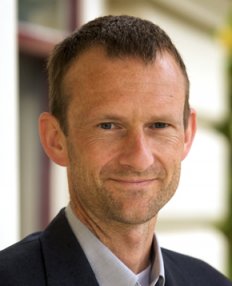
Andy is a member of the Bureau of the Intergovernmental Panel on Climate Change (IPCC) and vice-chair of Working Group III (Mitigation). He also served as coordinating lead author in two major IPCC climate change reports released in 2014.
Andy also currently serves as one of eight Commissioners on the New Zealand Climate Change Commission. The Commission was established as independent body to provide independent advice on adaptation and mitigation to the government of the day and to monitor the implementation of climate policies.
Prior to this role, Andy served as Principal Scientist, Climate Change, at the Ministry for the Environment, and before this, as Deputy Director (International) of the New Zealand Agricultural Greenhouse Gas Research Centre. In the latter role he focused on international research collaboration to reduce New Zealand’s and global agricultural greenhouse gas emissions.
Andy’s personal research interests focus on the role of agriculture in domestic and international climate change policy, the treatment of methane as part of comprehensive climate policies, and uncertainty and its implications for decision-making for both mitigation and adaptation.
Highlights
The Climate Change crisis and Asia – Pacific.
Kaveh Zahedi
Deputy Executive Secretary, United Nations Economic and Social Commission for Asia and the Pacific
Why should TERI engage in governance discussions on Carbon Dioxide Removal and Solar Radiation Modification?
Vibha Dhawan
Director General, The Energy and Resources Institute
Key messages from UNEP’s 2022 Emissions Gap Report and the Adaptation Gap Report.
Dechen Tsering
Director, United Nations Environment Programme Asia and the Pacific Office
Managing the risk of climate change overshoot in the Asia-Pacific?
Andy Reisinger
Vice-Chair of IPCC, Visiting Fellow, Climate Change Institute, Fenner School of Environment and Society, College of Science, Australian National University
What is the role of the Asia-Pacific region in global climate governance, and how should it engage in Solar Radiation Modification discussions?
Shinichiro Asayama
Senior Researcher, National Institute for Environmental Studies, Japan
How could the Asia-Pacific region advance governance for Carbon Dioxide Removal and Solar Radiation Modification?
Neth Daño
Asia Director, Action Group on Erosion, Technology and Concentration
The potential role of the UN Economic and Social Commission for Asia and the Pacific in advancing governance discussions in the region?
Ajai Malhotra
Distinguished Fellow and Senior Advisor (Climate Change), The Energy and Resources Institute

